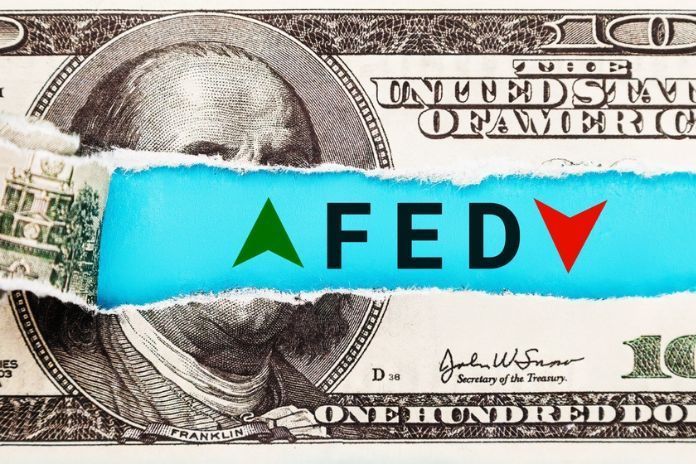3 Innovative Ways Real Estate Agents Can Boost Housing Affordability
(MoneyforAgents.com) – We in the real estate industry know that homeownership is still a great way to create wealth for future generations, even in the face of rising housing costs.
It should come as no surprise that fair housing and affordability are closely intertwined, as equitable financing and housing are essential to affordability for all.
When fair housing and affordability come together
A recent seller, Bob, made so much money selling his 20-year house that he could buy a retirement property in Savannah, Georgia, and had enough money left over for a healthy retirement nest fund.
This agent's story was related to Bob during a coaching session.
His pension as an employee of an auto plant is not included in this. That is the power of homeownership in the United States, so congratulations to Bob.
The affordability landscape of today
However, what if Bob's evaluation had been underestimated? Or what if he had been misled to another place or wrongfully refused the necessary finance, making it impossible even to buy that specific house?
What if the neighborhood was being redlined, limiting the kinds of purchasers who may submit an offer for his house?
Sadly, even as 2024 draws near, some people still live in such hypothetical scenarios.
Fascinatingly, the Department of Justice has observed two recurring patterns in redlining and other unfair housing (and lending) enforcement proceedings; these two patterns influence and contribute to the supply of overpriced housing.
Among them are:
- Redlining hazards were known to lenders, sometimes for years, yet they did nothing about it.
- Emails from managers or employees that contain evidence of discrimination, such as negative remarks about certain neighborhoods or overt hostility against protected groups.
A recent example from the news is "BofA was fined $12 million by the CFPB for not gathering data on mortgage applicants."
"On Monday, the Consumer Financial Protection Bureau (CFPB) stated that Bank of America (BofA) had been fined $12 million for breaking federal laws by providing fraudulent mortgage financing information for about four years.
The CFPB claims that hundreds of BofA loan officers omitted to inquire about the demographics of mortgage applicants and misrepresented their response rate, according to HousingWire.
This is important because it is against federal law and because, in many cases, the data gathered here is the only means by which we can hold businesses responsible for unethical lending and housing practices.
To put it another way, the saying "No face, no case; no names, just games" turns into a wicked prophecy.
"In 2022, KeyBank's deceit towards black and low-income homebuyers persisted."
Low- and moderate-income (LMI) borrowers received 19.2% of KeyBank's house purchase loans for the year, down from 19.7% in 2021.
For non-wealthy households looking to purchase a residence, KeyBank's longer-term success is understated by this slight but noteworthy one-year decline: More than 38% of these KeyBank loans were taken out by LMI borrowers in 2018. When compared to other leading lenders, who gave LMI borrowers over 30% of their 2022 buy mortgages, these data points appear even more disgusting. (Refer to NCRC.org)
Everyone should have access to fair housing and lending, not only the wealthy. Let's return to Bob's American dream. What would happen if he could not apply for a home loan? Based on this information, he probably would not have been admitted as a retiree from an auto plant.
"A federal regulator says Citigroup was fined $25.9 million for discriminating against Armenian Americans."
"The agency discovered throughout its probe that Citi staff members were told to flag applications with Armenian last names and then hide why those applications were turned down.
These workers kept any decisions off recorded phone lines or in writing since they knew doing so would violate bank regulations that forbid discrimination based on national origin.
Citizens held the perception that Armenians were more likely to commit fraud and crimes.
In actuality, Citi falsely created documents to conceal its discriminatory practices, according to CFPB head Rohit Chopra in a statement. (Source: ABC7.com)
Sadly, there is still work to be done because the connotations of a person's name or speech pattern are not a recent factor in unjust housing.
What if Bob's credit application was turned down immediately due to his last name? How he would have found himself in the middle of an American nightmare.
Ways to differentiate yourself in your market
Discriminatory housing (and lending) is based only on these three examples. However, we are not helpless.
As a result, we require more Fair Housing DECODERS—an abbreviation for all of us who support fair housing—in the community.
As Fair Housing DECODERS, let’s reflect on how we can demonstrate the letter “R,” which stands for “Reporter,” from the acronym for the above recent real estate news.
What are the duties of reporters? They submit a report!
To elaborate, let’s ensure we are aware of and share vital, fair housing and lending news with our networks so everyone can make informed decisions about which banks (and other companies) to patronize.
Stay up-to-date on necessary lending and fair housing data. I advise registering for Google Alerts at no cost.
You can set up an alert for national and local news with an alert like “fair housing in [insert your town and/or state].”
Proactively keep your network informed with vital fair housing and lending news
Do you enjoy sending a mailer or newsletter? Great, try adding a “fair housing corner.” Do you prefer TikTok, Instagram, or YouTube videos? Videos work well, too.
Add a monthly or quarterly vlog on fair housing. There is no limit to how you can keep your network informed.
Improve your business dealings based on the various fair housing and lending news alerts. Your preferred lenders and other vendor lists could use some end-of-the-year purging.
We have the local sway to hold fair housing and lending violators accountable by asking them how they plan to champion fair housing and lending in the future (they should include timelines and benchmarks).
I suggest not recommending them until they have a satisfactory, proactive plan with corresponding actions.
All businesses should be given another chance if they are willing to remain accountable and supportive of fair housing. When we know better, let’s do better.
As real estate agents, we have an opportunity to decode and interrupt unfair housing when it tries to rear its ugly head in our everyday operations, which can influence affordability for our neighbors.
Let’s make the most of each opportunity.
Copyright 2023. MoneyforAgents.com
Money for Agents lets you stop guessing when you get paid and take control of your cash flow. Create an account now and get your commission advance within 2 days or less (often the same day)!










